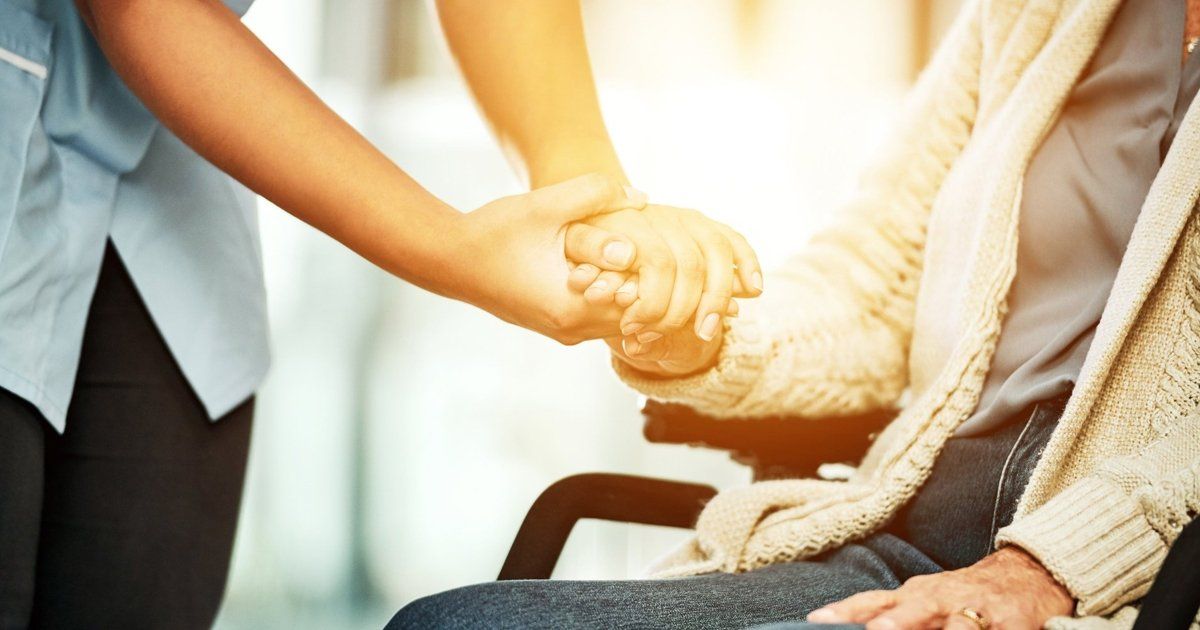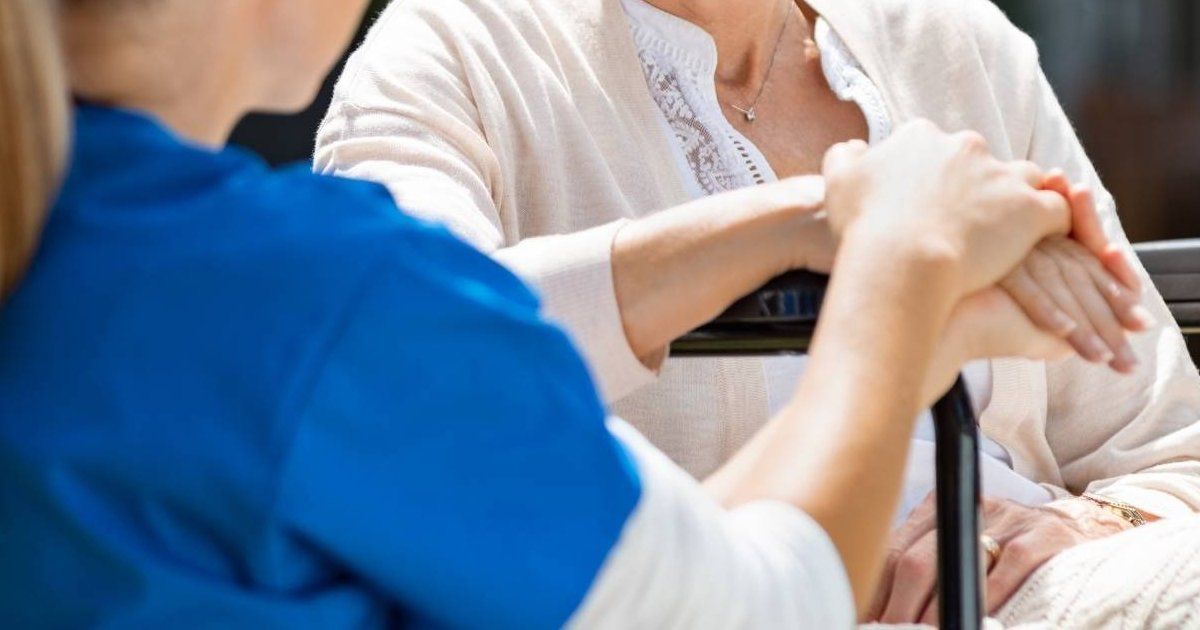Effective Ways to Help Elders Cope with Loneliness
Effective Ways to Help Elders cope with loneliness
Loneliness is a hard feeling to deal with, especially with the pandemic and increased time spent by oneself. Being alone and feeling alone can be a significant detriment to your physical and mental health, with elderly people being more at risk. Loneliness can affect anyone however, and a 2020 study done by Cigna reports that 61% of adults in the United States feel alone either sometimes or always. Loneliness and the feelings that come with it can be difficult things to adjust to, especially as you get older.
Seeing a loved one trapped in this state is a hard thing for anyone, especially if you are doing your best and trying to help in the ways that you can. Luckily, there are plenty of ways that you can help out people stuck in a rut of feelings of loneliness and start to get their emotional health back on track.
Encourage Social Interaction
The Merriam-Webster dictionary describes the word lonely as, "being without company" and "producing a feeling of bleakness or desolation." It may come as no surprise then that one of the best ways to help someone out if they are feeling lonely is to support them and advise them to pursue any social interaction that they can, whether it be different social activities, or even simply getting together with friends.
A healthy social life is an important thing for improving anyone's quality of life, let alone someone experiencing loneliness. If your loved one is experiencing depression as a result of being lonely, encouraging them to get out and do whatever they can to stay involved with other people is a must. Though they may not like it depending on their state of mind, it is an important part of a healthy lifestyle, and goes a long way in helping out with any effects of loneliness.
Volunteer
One of the best ways to expand your social circle is to either get your loved one to volunteer, or be a part of it with them. Volunteering is an amazing way to grant them a sense of purpose, and volunteering is an amazing way to spend their days, filled with meaningful activities and people who mean well.
From volunteering in a soup kitchen to help the homeless and those down on their luck, to an animal shelter, to care for those animals that need aid, there is a wide range of places that you can volunteer. Even if it's just helping out at your church's bake sale, any little bit helps, and gives you a chance to meet plenty of people from every spectrum of life.
Even if volunteering isn't usually their style, this is a great way to not only help out your community in a relevant and substantial way, but a great way to meet new people and keep in contact on a regular basis.
Visit and Interact with Peers
One of the most obvious ways that one can help out with feelings of loneliness is to get them into contact with their friends and peers. When people get into a rut, one of the big signs of depression is losing contact with those close to you. If you notice this happening to whomever you are concerned for, making sure that they keep connected with those around them is important.
It can be as simple as a call or a text every once in a while, just to let them know that people love and care for them. You can get in contact with friends and other family, let them know to reach out and send some love their way, making sure they feel like a part of a community and family.
Setting up times to meet or talk with people they haven't seen in a while is big as well, especially if they live in a nursing home or assisted living, and aren't able to get out as much as anyone else.
Join a Group or Club
Finding like-minded people is important for anyone, not just those struggling with lonely or depressive symptoms. Discovering groups or clubs in your loved ones area is a great place for them to get out and socialize. Figuring out what they love to do and finding places in the area that run for that is a great way to get them out and meet new people.
Perhaps it's a chess club, with people of all ages. Maybe they love reading, and finding a book club with new books and people to discuss them with. Or perhaps they still love football, and finding a fantasy football club with people who adore the game as well.
There are plenty of groups and clubs in your area, unless you live in an extremely rural town or place of the country. Places like your local community center, library, or senior center are amazing places to find things going on in your area. Finding these places and people might take a little bit of work, but it can be an important way to get them out of their living space and interacting with new people who love what they love.
Encourage Mental and Physical Health
Making sure people are introduced to new and varying social situations can play a huge part in helping out lonely people. These aren't the only ways to do so though. Depression and loneliness affect your mental and physical health, and taking care of both your body and mind goes a long way in staving off the effects of loneliness.
Clinical depression is a serious mental disorder that poses health risks, and making sure to treat it the same as any other medical condition is key. Diagnosing the problem, and then treating the symptoms. These next couple of things are important ways you can help your loved ones dealing with these problems.
Eat Healthy
Eating healthy should be an important part of anyone's life, but this is doubly so for anyone dealing with loneliness or depression. Sutterhealth states that "a healthy, well-balanced diet can help us think clearly and feel more alert. it can also improve concentration and attention span." On the other hand, eating poorly can give you fatigue, make your decision-making worse, and can make reaction times far slower. Eating well is a simple way to help out anyone, especially those struggling with loneliness.
If they are unable to cook for themselves, getting together and cooking healthy meals for them is important. If they are in assisted living or a nursing home, advising them to eat well and decline any junk food is good. There is a critical link between mental health and physical health, and improving your body and what foods it's processing is a great way to clear your head and improve your overall health.
Do What Exercise You Can
Depending on the physical state your loved one is in, regular exercise can be key in fending off the symptoms of depression and loneliness. According to Harvard Health, exercise can be just as effective as antidepressants, releasing endorphins to help improve overall wellbeing and helps stimulate brain growth and brain function. Exercising regularly can help push off any cognitive decline your loved one may be having as well.
While having a regimented exercise program or a schedule isn't an option for everyone due to physical limitations, if the person you are looking after is in good enough shape to do any kind of exercise on a regular basis, it's a important to ask them to try. Even something as simple as a short walk everyday can do wonders for your mind and health, and also gives you a chance to get out and socialize with people as you exercise.
Possibly Seek Professional Help
Another thing to consider on the basis of mental health, is whether or not your loved one should seek out any kind of professional help, such as a psychiatrist. Anyone trained in dealing with mental health has a lot of information on how to deal with things like chronic loneliness and lonely individuals. These people are trained to help deal with any symptoms, and can help to diagnose whatever is wrong. Getting into see someone for your mental health, being diagnosed, and getting medications possibly can be a great thing.
While there may be a stigma against seeking help for your mental health, that shouldn't hold you back from seeking the assistance that your loved one may need.
Consider Home Care or Assisted Living
Another thing that you may want to consider, especially if you don't have much time to help your loved one, is moving them into assisted living or getting home care to visit them in their home. Depression and loneliness can often have other effects and symptoms, and getting help to assist with them is never a bad thing. Getting them assistance with living also gives them people to talk with on a regular basis, and especially if moving into an assisted living community, people they may be able to connect to and thrive with.
Moving anyone into assisted living or home care is a big choice, and definitely not one to be taken lightly. If you've tried many of the things above and your loved one is still dealing with extreme loneliness or depression, this is an option that you may want to heavily weigh.
Conclusion
No matter the time of life, depression and loneliness aren't easy things to deal with, especially if you are watching someone you care about have a hard time deal with them, and mental health issues are no joke.
Thankfully there are plenty of options to help them out, from social events and friends, to eating healthy, to even getting help with taking care of them. There are many things that work, varying from person to person in effectiveness, but know that, even if it may feel like it, you aren't alone in the things that you deal with.
Schedule a Visit Today
Emerald Care Home CA State Lic#:015601128 7314 Emerald Ave, Dublin, CA 94568 510.468.2525
Emerald Care Home. All Rights Reserved. Privacy Policy. Website Design by Local Business First






